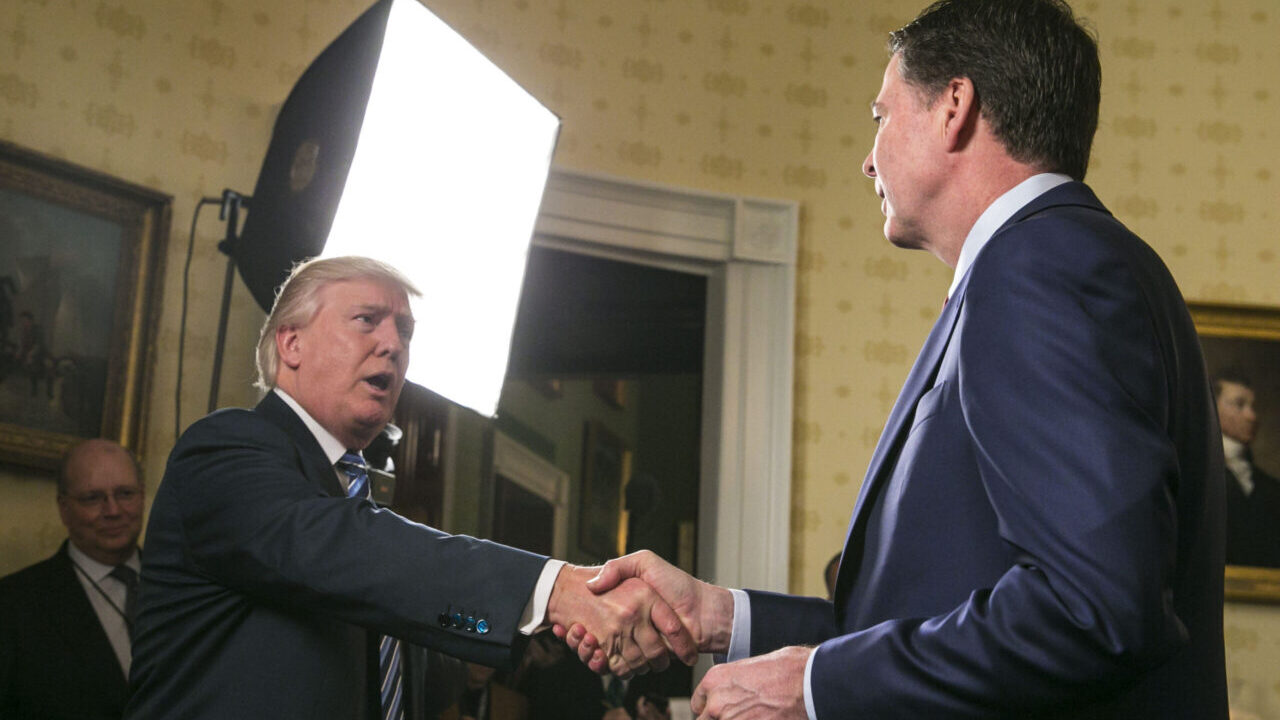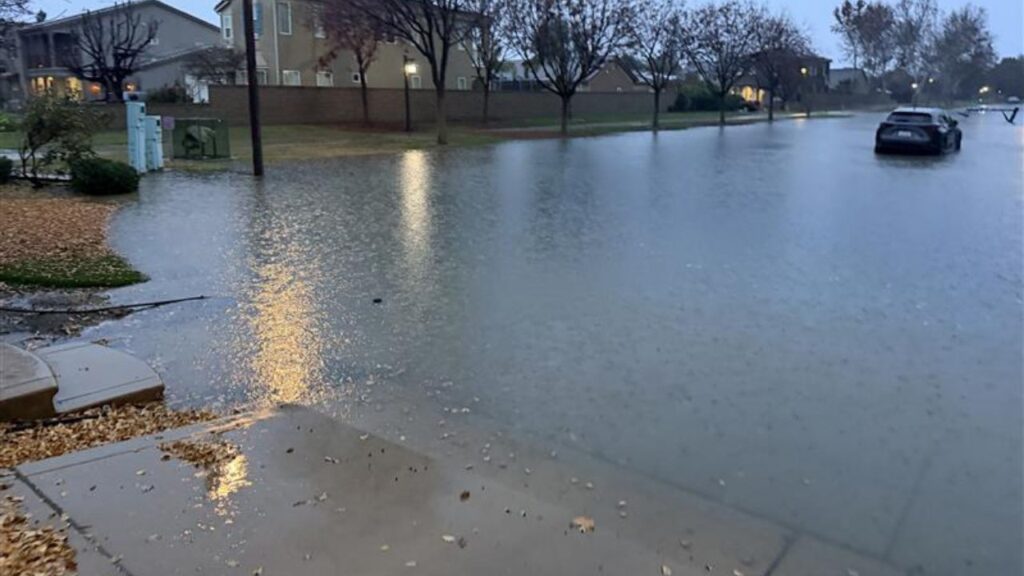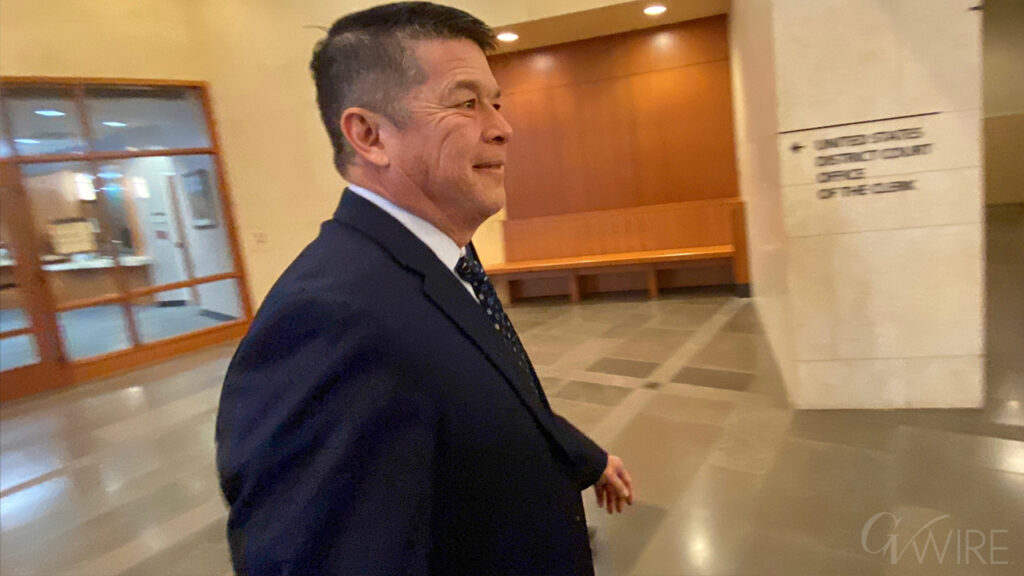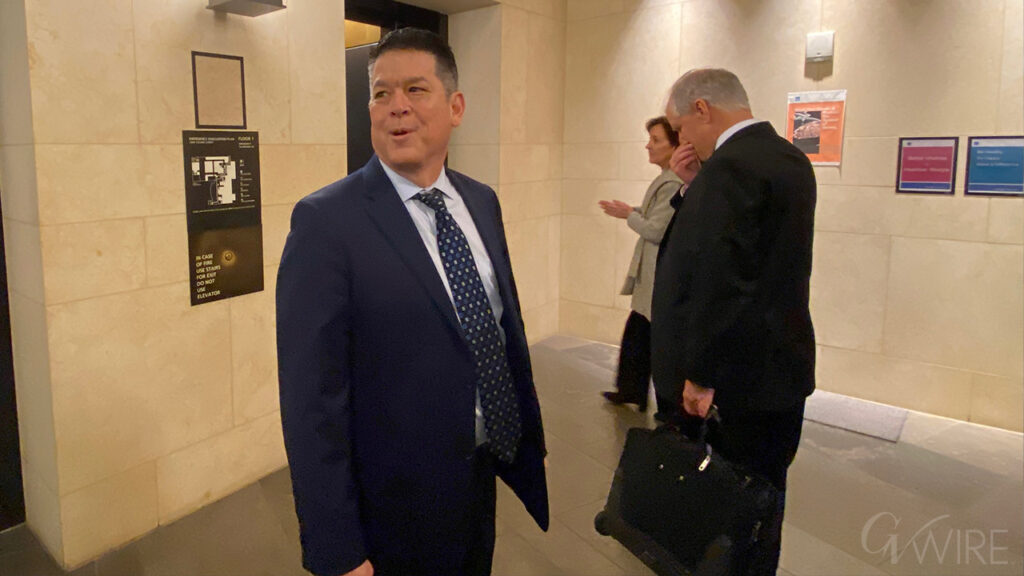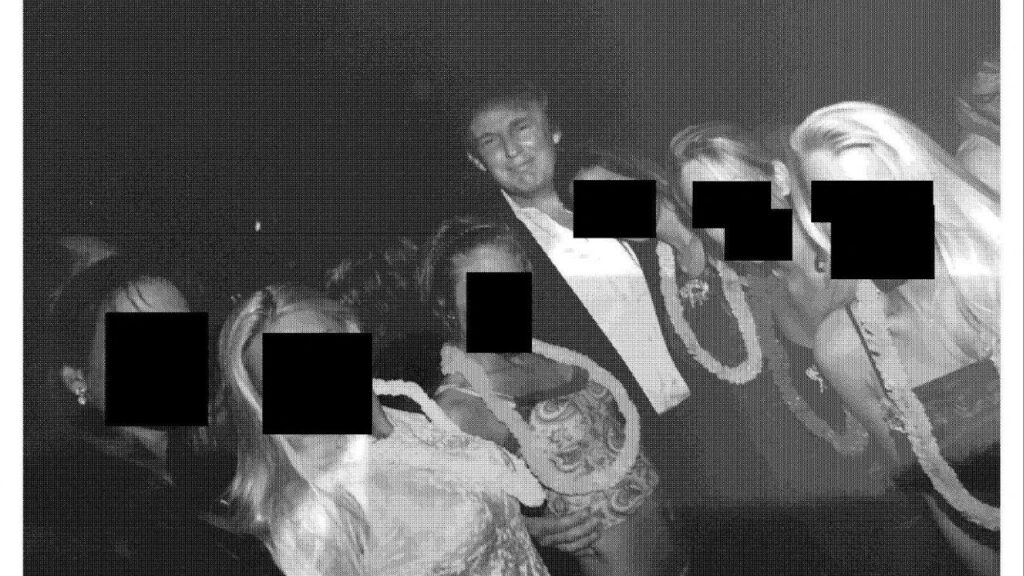President Donald Trump shakes hands with James Comey, the FBI director, at the White House in Washington, Jan. 22, 2017. Comey’s indictment comes after years of relentless demands by Trump for punishment over the FBI’s investigation into possible Russian ties to Trump’s 2016 campaign. (Al Drago/The New York Times/Files)

- President Donald Trump goes from claiming no knowledge of a possible indictment of former FBI director James Comey to celebrating it as “JUSTICE IN AMERICA!”
- In reality, Trump had handpicked the prosecutor — previously one of his own personal lawyers — in an effort to ensure it happened.
- It was a landmark moment in Trump’s retribution campaign, and further evidence of his use of the DOJ to punish his political opponents.
Share
|
Getting your Trinity Audio player ready...
|
In the span of a few hours Thursday, President Donald Trump went from claiming no knowledge of a possible indictment of former FBI director James Comey to celebrating it as “JUSTICE IN AMERICA!” In reality, Trump had handpicked the prosecutor — previously one of his own personal lawyers — in an effort to ensure it happened.
It was a landmark moment in Trump’s retribution campaign, one that put on full display the relentlessness of his efforts to use the criminal justice system to get back at those he feels persecuted him. And there is no indication that his efforts at payback are over.
Here are four takeaways on the indictment of Comey.
Breaking Fundamental DOJ Norms
Throughout his first term, Trump — under investigation himself for possible ties between his 2016 presidential campaign and Russians seeking to influence the outcome of the race — sought to instigate investigations into his perceived enemies.
Trump’s zeal prompted his White House counsel at the time, Don McGahn, to write a memo explaining what the president could and could not do. “Strong constitutional norms of nonpolitical law enforcement should also guide your decision-making and may caution against involvement in a specific matter,” McGahn wrote.
In his second term, backed by a new cast of advisers who say he has the ability to direct investigations, Trump has abandoned any pretense of adhering to such advice. He publicly pressed his attorney general for the prosecution of Comey and other foes, fired a federal prosecutor who balked at carrying out his will, and installed an ally to do his bidding over the objections of career prosecutors who concluded the evidence against Comey was too weak to warrant charging him.
(Comey again declared his innocence Thursday and said he looked forward to a trial.)
Trump’s success in pressuring the Justice Department to carry out his wishes was the starkest example yet of how he has overridden the procedures and norms that have long guided the Justice Department and sought to insulate it from political pressure.
Other Trump Foes Now at Risk
Comey was high on Trump’s list of retribution targets, but the list is long.
Trump also has sought mortgage fraud charges against Letitia James, the New York attorney general, who successfully brought a civil fraud case against Trump and his company.
Trump may now put more pressure on his prosecutors to charge James, as well as Sen. Adam Schiff, D-Calif., who while serving in the House was a leading force in investigating Trump.
The Justice Department is already investigating an organization tied to liberal billionaire George Soros, who has long been a focus of the right. And the president ratcheted up the pressure Thursday, signing a memorandum for a whole-of-government effort at combating organized domestic terrorist groups, with a strong focus on those whose politics he dislikes and whose activities he sees as having encouraged threats to him and his allies.
Trump’s Fury Appears Unabated
Trump’s second election victory was more decisive than the first, and showed his first win was not the fluke his critics claimed. Since January, he has imposed much of his agenda on the country and the world, reshaping global trade, slashing government, reversing many Biden administration policies and leaving many Democrats flustered and demoralized.
Yet Trump remains deeply aggrieved by the investigations that dogged him through his first term, the prosecutions that put him at risk of being jailed in the years after, and the attempts on his life in 2024.
Trump has sought ever-expanding presidential power, and has for the most part seen his efforts endorsed by a Supreme Court that he shaped in his first term. He has devoted extensive time to trying to silence critics, including threatening to pull broadcast licenses from television networks and filing lawsuits against media outlets.
Trump has almost always sought to see how far he can press the limits on him. So far, he has been largely unchecked — by courts, by Congress, by a staff radicalized by the investigations into him — in his push to channel his anger into payback.
Prosecutors Face Challenges to Winning the Case
Getting an indictment is relatively easy for prosecutors, who have a lot of sway over grand juries. Winning at trial is much harder, and in the Comey case, many factors could make it challenging for the government to secure a conviction.
Line prosecutors in Virginia who had initially reviewed the evidence in the Comey case put in a memo why they thought the effort to convict him was too weak to take to court. The grand jury on Thursday rejected one of the three counts presented to it. And Trump’s string of invective about Comey and his repeated references to his own criminal cases provide a lot of evidence for possible defense motions about a vindictive prosecution.
Still, Trump has always understood that even absent a conviction, defendants face a reputational cost in a criminal case, not to mention the financial penalty in the form of legal bills.
This article originally appeared in The New York Times.
By Maggie Haberman/
c.2025 The New York Times Company
RELATED TOPICS:
Categories

Clovis Police Arrest Armed Suspect After Gun Disturbance

Wall Street Trades Near Flat-Line Ahead of Christmas Break
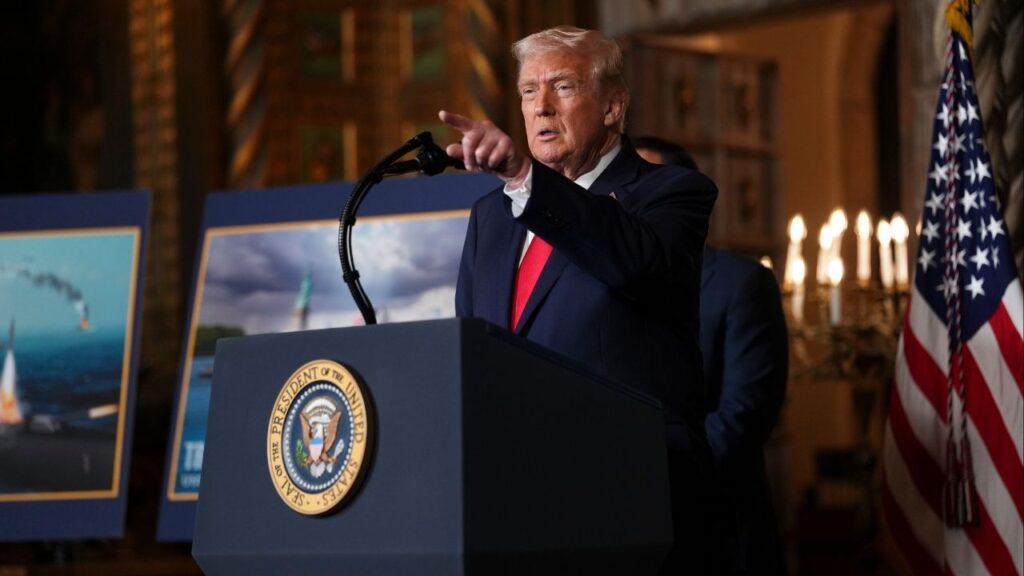
Democrats Urge Trump to Reverse Mass Ambassador Recalls



